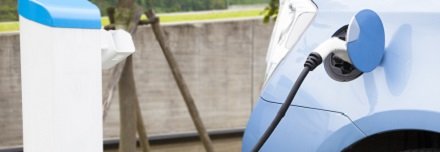
The Association for the Promotion of Electric Vehicles (APEV) wants back yard inventors from high schools to businesses to help supercharge New Zealand’s chances in the global market.
It’s come up with the Orion EVolocity programme, a series of project-based contests and boot camps.
The high school competition in partnership with CPIT, Enviroschools and Electroflash, has several categories include motor controller, electric vehicle build, sound effects synthesiser, overall performance and design, video, and social marketing.
An inaugural boot camp for high schools was held on the campus of Christchurch Polytechnic on 13 April, with about 50 students from nine high schools. A second boot camp is set for later this month.
It’s likely around 20 high school teams will participate in the Canterbury pilot programme in 2014, well above projections of 10 to 12 teams, says APEV chief executive Rob McEwen, adding the organisation plans to expand the high school programme nationally in coming years.
There are two categories for tertiary institutes, businesses and innovators: eBuild and Dragon’s Den. eBuild lets entrans build an electric vehicle like a go kart, motorbike or car, using a standard kit developed by APEV that can be manipulated to get the best performance and economy. The Dragon’s Den is aimed at engineers, mechanics, university and polytechnic students and DIY innovators, says McEwen.
“This could be power electronics and componentry, revolutionary ICT or niche vehicle prototypes. This is their chance to put their back shed tinkering to the test, with the possibility of commercialisation as the end goal.”
The 2014 programme will culminate in an electric motorsport event on 30 November at Mike Pero Motorsport Park in Christchurch. The event will include an electric car efficiency rally, standing sprints and lap sprints.
In the go kart category, entrants will show off vehicle designs and team costumes, with an award for the most creative entry, as well as best performance. In the motorbike and car categories, there will be awards for best presented vehicle, as well as performance awards. There will also be performance combustion cars versus electric car sprints and public test drive opportunities.
New Zealand has a big opportunity to participate in the global electric vehicle market, says McEwan. “The most cautious projections are for 80 million electric vehicles to be in use worldwide by 2040, up from 400,000 today. If New Zealand had a $1000 input in just five per cent of those vehicles, it would produce $4 billion in earnings – representing a significant opportunity in a global growth sector.
“As well as export opportunities, electric transport means reduced reliance on fossil fuel imports and better use of our existing clean energy infrastructure. We have one of the cleanest electricity grids in the world, capable of powering over 75 per cent of the light passenger vehicle fleet in 2040 – or 2.5 million, from a fleet of 3.2 million – with about eight per cent more generation than the no electric vehicle option.”




